

Clinical Fellowship Opportunities
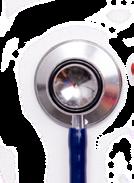





The mission of St. Jude Children’s Research Hospital is to advance cures, and means of prevention, for pediatric catastrophic diseases through research and treatment. Consistent with the vision of our founder Danny Thomas, no child is denied treatment based on race, religion or a family’s ability to pay.
“The St. Jude story is one of discovery, innovation and healing—and it begins with those dedicated to finding cures and saving children. Our unique fellowship programs offer an immersive experience that integrates patient care, research, leadership opportunities and more. By training the next generation, we ensure this incredible story continues for children everywhere.”

James R. Downing, MD President and Chief Executive Officer
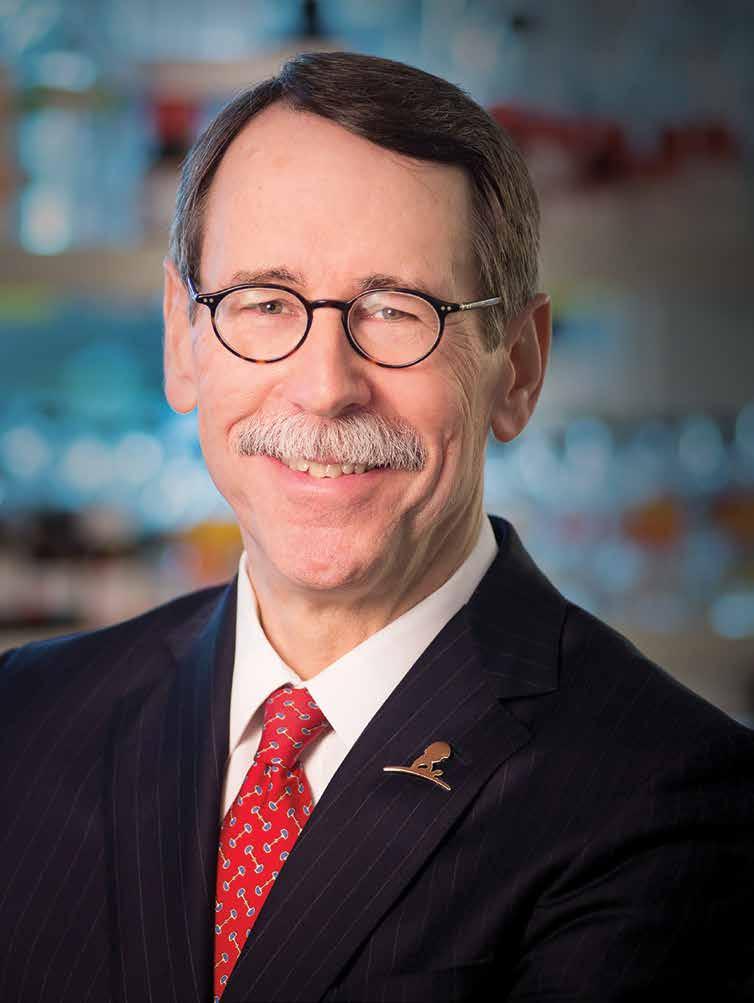
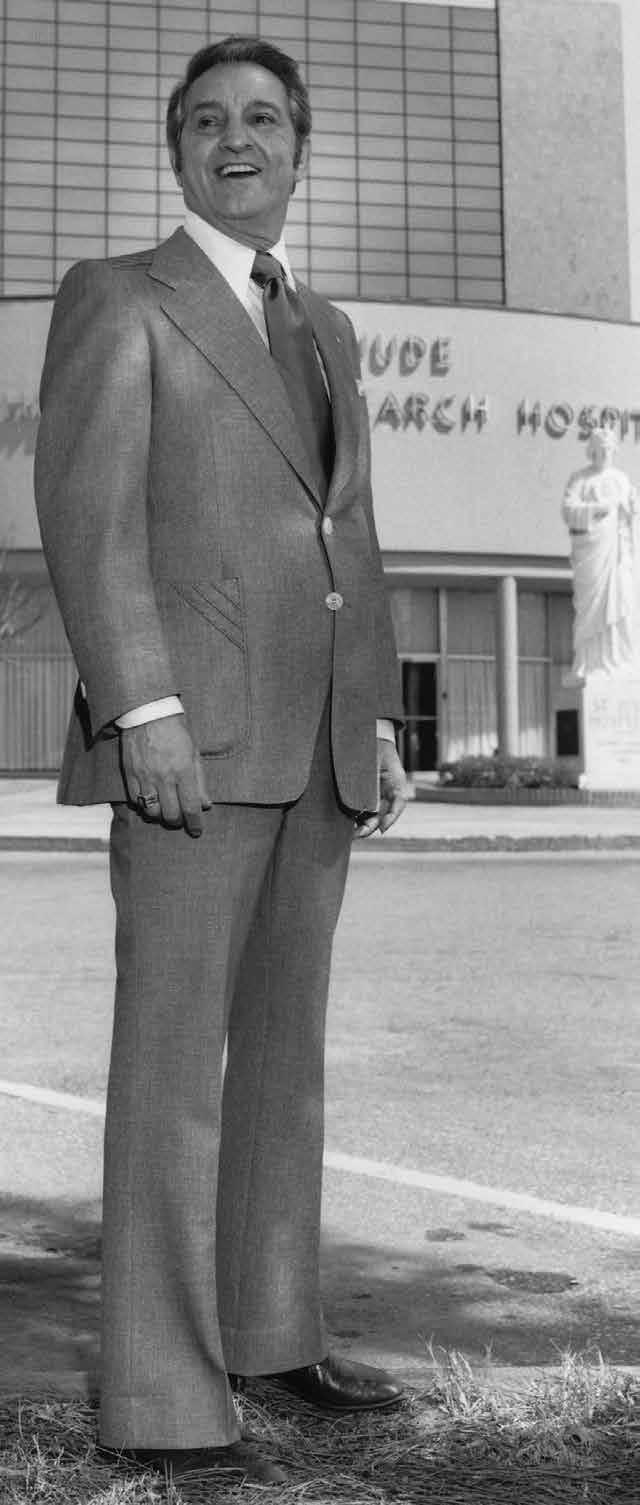
The History of St. Jude
HOW ST. JUDE BEGAN
St. Jude was founded in 1962 by entertainer Danny Thomas, who envisioned a hospital that would treat children regardless of race, color, creed, or their family’s ability to pay. From the outset St. Jude has been a unique research institution, where physicians and scientists work together in a true bench-to-bedside model of discovering cures and caring for patients. This collaboration remains at the heart of how St. Jude operates.
Since its founding, St. Jude has become one of the world’s premier pediatric hospitals and research institutions, focusing on eradicating childhood cancer and other catastrophic pediatric diseases.
“No child should die in the dawn of life.”
- Danny Thomas Founder
KEY MILESTONES
1962: St. Jude opens its doors. At the time, the survival rate for the most common pediatric cancer, acute lymphoblastic leukemia, was only 4%. Today, thanks to innovative therapies, 94% of St. Jude patients with ALL become long-term survivors.
1972: Donald Pinkel, MD, St. Jude director, receives the Albert Lasker Clinical Medical Research Award for his contribution to the development of combination therapy for cancer.
1975: The World Health Organization (WHO) designates St. Jude as a Collaborating Center for Studies on the Ecology of Influenza Viruses in Animals, a distinction retained to the present day.
1975: St. Jude becomes the first hospital to identify important subtypes of acute lymphoblastic leukemia, proving that it is not a single disease. This research leads to better risk classification and more effective treatment for children with the disease.
1983: A St. Jude patient with sickle cell disease is the first to be cured with a bone marrow transplant.
1984: The After Completion of Therapy Clinic is established. It remains the world’s largest long-term follow-up clinic for pediatric cancer patients, and St. Jude is leading unique research programs with data from thousands of survivors.
1996: Peter Doherty, PhD, of the St. Jude Immunology Department and Rolf M. Zinkernagel, MD, of the University of Zurich, are awarded a Nobel Prize in Physiology or Medicine for their discovery of how the immune system recognizes and kills virus-infected cells.
2003: The Good Manufacturing Practice (GMP) facility opens, making St. Jude the nation’s first pediatric cancer research center to have a facility for producing vaccines, proteins, gene therapy vectors and other biologics for clinical trials.
2007: The National Institute of Allergy and Infectious Diseases designates St. Jude as one of six Centers of Excellence for Influenza Research and Surveillance (CEIRS). The seven-year award is renewed in 2014.
2007: St. Jude LIFE Study begins to track the long-term health effects related to cancer therapy. To date, more than 6,300 participants have undergone comprehensive health evaluations.
2008: The National Center Institute designates St. Jude as a Comprehensive Cancer Center, making it the first and only cancer center solely focused on pediatric cancer to receive this distinction.
2010: The St. Jude—Washington University Pediatric Cancer Genome Project launches. The project, the world’s largest research initiative focused on identifying the genetic origins of childhood cancers, is subsequently named one of the “Top 10 Medical Breakthroughs” of 2012 by TIME magazine.
2014: St. Jude researchers pioneer gene therapy in collaboration with University College London that provides adult patients with reliable relief from hemophilia B.
2015: The world’s first proton therapy center dedicated solely to children with cancer opens at St. Jude.
2016: CEO James Downing, MD, is named to a Blue Ribbon Panel to advise Vice President Joe Biden’s National Cancer Moonshot Initiative through the National Cancer Institute.
2017: The St. Jude Children’s Research Hospital Graduate School of Biomedical Sciences matriculates its inaugural class in a unique PhD program focused on translational discovery.
2018: St. Jude breaks ground on a 600,000 squarefoot advanced research center that will cultivate transformative research and collaboration.
2018: St. Jude Global launches as an ambitious initiative to improve access to care for children with cancer and lifethreatening hematologic disorders in every corner of the world.
2021: St. Jude scientists identify how the SARS-CoV-2 virus activates inflammatory cell death pathways. They find that drugs already used to treat some inflammatory diseases could be repurposed for COVID-19.
2023: Scientists from St. Jude perform the largest study yet examining drug sensitivity in pediatric ALL across genomic subtypes and its association with treatment response.
2023: In a report published from the Childhood Cancer Survivorship Study (CCSS), researchers at St. Jude demonstrate the importance of a healthy lifestyle for childhood cancer survivors, showing that it can lower earlymortality risk.
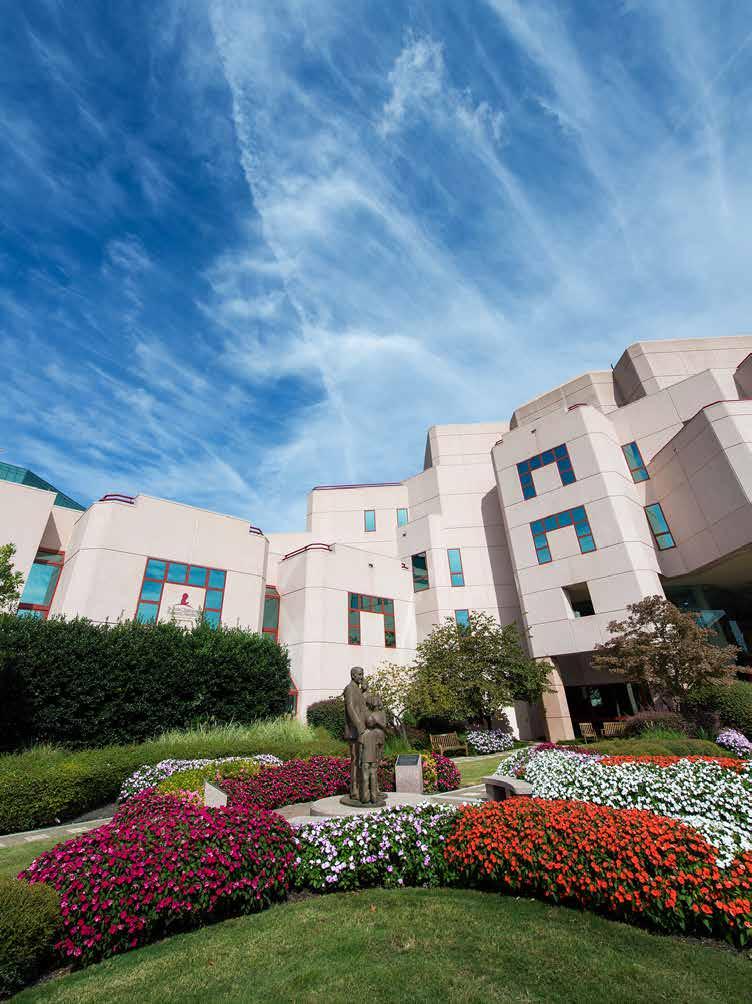
About St. Jude
A Great Place to Work
With a rich training environment and strong commitment to creating clinical leaders, St. Jude provides an exceptional opportunity to advance your training and launch your career.
As a clinical fellow at St. Jude, you will practice cutting-edge clinical care, undertake clinical, translational or basic research projects and work closely with an interdisciplinary cohort of fellows, postdoctoral researchers, residents and renowned faculty.
The institution has been recognized with numerous awards for its outstanding workplace environment. We have been named as:
• One of the “ 100 Best Companies to Work For ” by Fortune magazine every year since 2011
• One of the “ Best Children’s Hospitals for Pediatric Cancer ” by U.S. News and World Report every year since 2008
• A top 10 “Best Places to Work in Academia” by The Scientist magazine for seven consecutive years
• One of the “ 100 Best Workplaces for Millennials ,” “ 50 Best Workplaces for Diversity,” “ Best Workplaces in Health Care,” and “ Best Workplaces for Women” by Fortune magazine
• One of the “ Best Places to Work ” by Glassdoor
• One of the “ Companies That Care ” by People magazine
• A Secretary of Defense Employer Support Freedom Award recipient
A Unique Funding Model
St. Jude is supported by ALSAC, one of the world’s leading nonprofit charitable organizations. ALSAC exists solely to raise and provide the funds necessary to operate and maintain St. Jude. This means the scope of clinical care is not determined by insurance coverage or a family’s ability to pay. When a child is treated at St. Jude, their family never
receives a bill for treatment, travel, housing or food. St. Jude treats children from all over the world.
Clinical and basic researchers also receive substantial support from competitive external grants and awards. St. Jude clinical training efforts are supported by a Children’s Hospitals Graduate Medical Education grant.
As a St. Jude fellow, you will have a remarkable degree of freedom to pursue innovative ideas and therapies for patients. You will also have access to extensive state-of-the-art shared resources and core facilities to support clinical and laboratory-based research.
Memphis Medical District Collaborative
Joining St. Jude means you are joining a community of leaders and innovators in health care. The St. Jude campus is just blocks away from the Memphis Medical District, an important center for health care in the Mid-South. More than 40,000 people work and learn in this dynamic hub for biosciences and biomedical research. St. Jude faculty and fellows frequently collaborate with researchers and clinicians at other medical institutions, and many see patients at other area hospitals.
The University of Tennessee Health Sciences Center, the medical school complex for the UT system, is located on the Health Sciences Park campus approximately two miles from St. Jude. Nearby Le Bonheur Children’s Hospital is one of the nation’s best general children’s hospitals. The area is also home to Methodist University Hospital, Regional One Medical Health Center, the Memphis VA Health Center and Baptist College of Health Sciences.
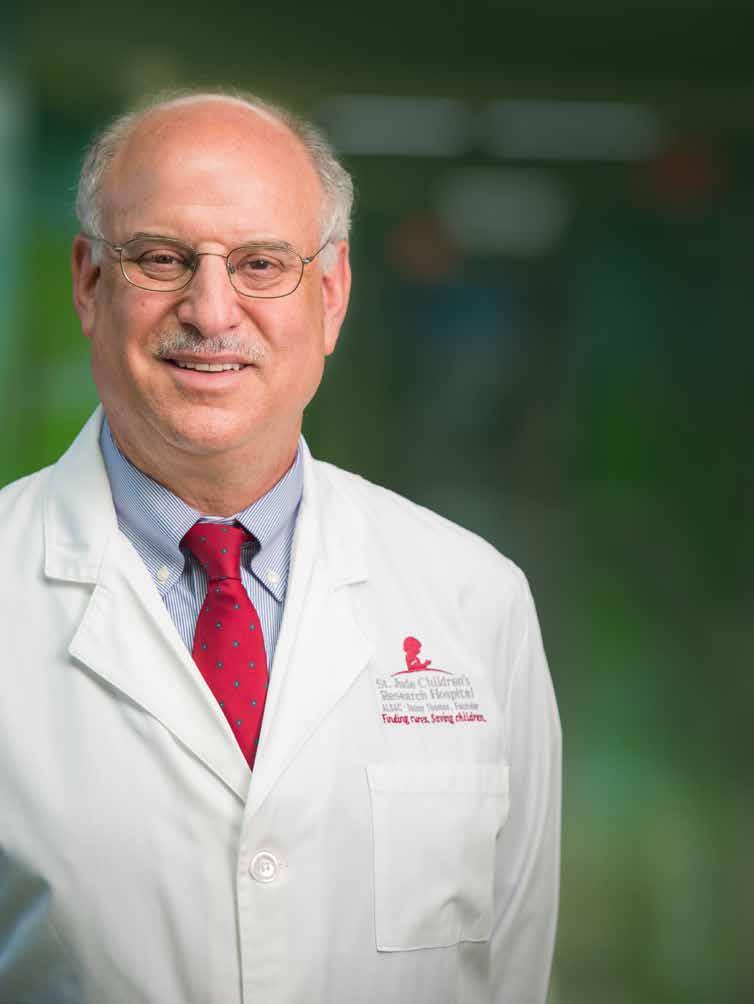
“At
St. Jude, clinical fellows benefit from a dynamic learning experience in a resource-rich environment. We work with clinical fellows to create a strong foundation from which they can build meaningful and impactful careers.”
Ellis J. Neufeld, MD, PhD Clinical Director and Physician-in-Chief
Pediatric Hematology/Oncology
The St. Jude program provides you with a thorough understanding of the pathophysiology of pediatric malignancies and hematologic disorders. Fellows obtain exceptional experience by working in a clinical environment that sees nearly 600 new oncology patients and treats more than 900 sickle cell patients a year, as well as children with other non-malignant hematologic conditions. Clinical Rotations are organized by disorder/disease type to promote a focused learning environment.
As a fellow, you will:
• Gain cutting-edge knowledge in the treatment of pediatric malignancies and hematologic disorders
• Work side-by-side with renowned physicians and hospital staff
• Embark on an individualized clinical or basic/translational research track and project of your choosing
• Participate in Phase I and Phase II trials that may shape the development of new institutional protocols
This three-year, ACGME-accredited fellowship, trains the best future leaders in academic pediatric hematology/oncology. Fellows may elect to extend training through focused subspecialty training* or additional research training.
*See following pages for details of subspecialty programs
Eligibility:
Program Director: Hiroto Inaba, MD, PhD: hiroto.inaba@stjude.org
Associate Program Director: Nidhi Bhatt, MD: nidhi.bhatt@stjude.org
Program Manager: Rachel Bernstein, EdS, C-TAGME rachel bernstein@stjude.org
Eligible applicants will have completed an ACGMEaccredited pediatric or internal medicine/pediatric residency program.
To Apply:
St. Jude participates in the National Residency Matching Program (NRMP).
Learn More: Visit: stjude.org/hemonc-fellowship

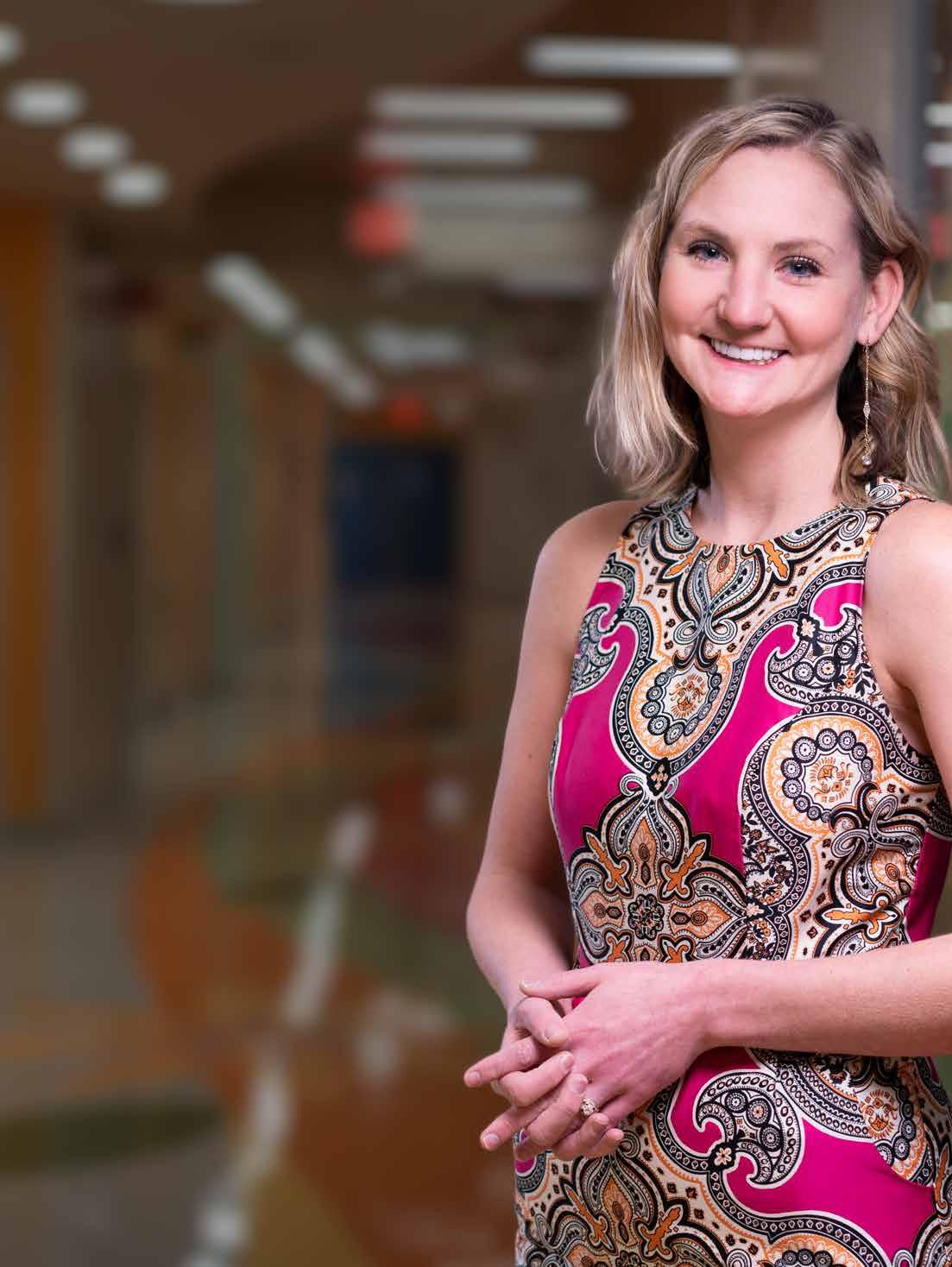
“As a former St. Jude patient, I had very high expectations for the St. Jude Hem/Onc Fellowship.
During my time as a fellow, I received unparalleled clinical training and research mentorship. I was given unlimited opportunities to develop my clinical skills and knowledge base, surrounded by experts in the field who were invested in my personal growth and success. I was encouraged to choose and lead clinical research projects that fit my interests and given ample resources to reach my goals. All of this happened in an atmosphere of hope and positivity that is unique to St. Jude.
As I complete my training, I can feel myself growing into the clinician and researcher I once dreamt of becoming.
St. Jude did not disappoint!”
Margaret Cupit-Link, MD Hematology/Oncology Alumna
Pediatric Infectious Diseases
St. Jude is a national leader in the care of immunocompromised patients, and we provide our clinical fellows with unique training experiences specific to this patient population. Fellows see a wide range of patient cases at our campus and through our affiliations with the University of Tennessee Health Science Center’s Pediatric Residency program and the Division of Pediatric Infectious Diseases at Le Bonheur Children’s Hospital.
As a fellow, you will:
• Become an effective consultant for the care of children with infectious diseases through clinical rotations at both St. Jude and Le Bonheur
• Conduct clinical, translational or basic science research with nationally and internationally recognized investigators
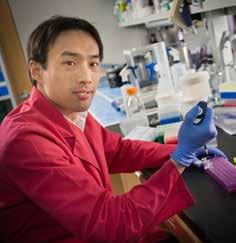
• Work within one of the largest infectious disease research programs in the world
• Have the opportunity to enrich your training experience through electives including antimicrobial stewardship, infection prevention and global health
This is a three-year, ACGME-accredited fellowship. This program also offers one and two year non-accredited fellowships in Infectious Diseases of Immunocompromised Children and Adolescents and HIV Medicine.
Program Director: Tim Minniear: tminniea@uthsc.edu
Program Coordinator: Trachia Wilson, C-TAGME: trachia.wilson@stjude.org
Learn More: Visit: stjude.org/id-fellowship
Eligibility:
Eligible applicants will have an MD or local equivalent and will have completed three years of general pediatric residency.
To Apply:
Applications are accepted through the Electronic Residency Application Service (ERAS). If off cycle, please contact the program director directly.
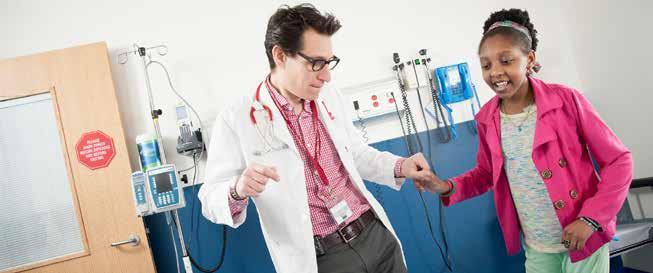
Hospice and Palliative Medicine
This program is an integrated component of the University of Tennessee Health Science Center Hospice and Palliative Medicine Fellowship, which trains a total of 6 (both adult and pediatric) fellows annually. Fellows will have a unique opportunity to develop skills in complex symptom management and advanced communication while caring for children with cancer and other catastrophic diseases at St. Jude Children’s Research Hospital. In partnership with UTHSC and Le Bonheur Children’s Hospital, pediatric HPM fellows spend 3 months on St. Jude’s Quality of Life service, which sees more than 300 new consults and 4000 encounters annually, and 1 month with QoLA Kids, a community-based palliative care and hospice program through Methodist-Alliance. Each pediatric and adult fellow will also have a 1-month rotation with the pain service at St. Jude. Beyond clinical time at St. Jude, pediatric fellows obtain well-rounded exposure to general pediatric and adult palliative care across settings.
As a fellow, you will:
• Gain experience in multimodal, interdisciplinary management of pain and complex symptoms for children with cancer and other life-threatening conditions.
• Develop communication skills for serious conversations through clinical work and facilitated role-play with St. Jude’s parent educator team.
• Collaborate with interdisciplinary team members to support children and families across the illness trajectory including at end of life.
• Provide compassionate patient- and family-centered care while balancing self-care, reflective practice, and professional boundaries in pursuit of career sustainability.
This is a one-year ACGME-accredited fellowship program in Hospice and Palliative Medicine.
Program Director: Arshia Madni, MD: amadni@uthsc.edu
Pediatric Associate Program Director: Brittany Cowfer, MD: Brittany.cowfer@stjude.org
St. Jude Site Director: Griffin Collins, MD: griffin.collins@stjude.org
Learn More: stjude.org/hpm-fellowship
Eligibility:
Eligible applicants will have completed an accredited residency program in an eligible specialty, such as pediatrics, family medicine, or internal medicine. This program may also be completed as a combined program with St. Jude’s Pediatric Hematology/Oncology program.
To Apply:
Through ERAS/NRMP match, listed under “Multidisciplinary” programs as “University of Tennessee Health Science Center-Memphis”

Bone Marrow Transplantation and Cellular Therapy
As a fellow in this program, you will have the benefit of working with internationally known clinicians and investigators in one of the largest pediatric bone marrow transplantation programs in the world. St. Jude researchers in the Department of BMTCT have pioneered the development of a number of new therapies for pediatric transplantation. This sub-specialty fellowship will provide fellows with the opportunity to gain tremendous clinical exposure to a high-volume transplant program that performs approximately 100 transplants per year for malignant and non-malignant diseases using a variety of donor sources and conditioning regimens.
As a fellow, you will:
• Gain experience in all aspects of patient care in both the outpatient and inpatient setting, including pre-transplant evaluation, HLA typing, donor selection and the management of both acute and chronic complications of BMTCT
• Work in an active cellular and immunotherapy program that includes the use of gene-modified cells for treatment of severe combined immunodeficiency disease, hemophilia and leukemia
• Become familiar with diverse cell processing activities, including exposure to our on-site Good Manufacturing Practice (GMP) and Human Applications Lab (HAL) facilities, which develop high-quality, cell-based products for BMTCT procedures
• Work with and learn from nationally and internationally recognized clinical and basic science investigators within BMTCT and throughout St. Jude
This one-year program allows fellows to develop specialized expertise in the clinical and research aspects of BMTCT.
Program Director: Aimee Talleur, MD: aimee.talleur@stjude.org
Program Coordinator: Amie Ray: amie.ray@stjude.org
Eligibility:
Eligible applicants will have completed an accredited pediatric hematology/oncology fellowship program.
Learn More & Apply: Visit: stjude.org/bmtct-fellowship
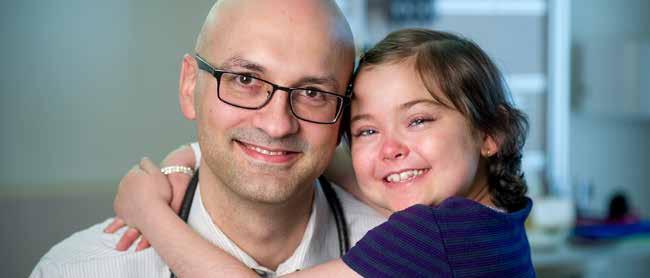
Cancer Predisposition
The St. Jude Fellowship in Pediatric Cancer Predisposition offers training in germline precision medicine, which holds great promise to optimize the clinical care of children with cancer. As such, it is critical that pediatric hematology/oncology practitioners understand and learn how to incorporate recent exciting yet complex discoveries surrounding germline genomics into the daily management of their patients.
As a fellow, you will:
• Enhance your clinical expertise in the diagnosis and evaluation of infants, children, adolescents, and young adults with hereditary cancer predisposition syndromes.
• Develop a multidisciplinary approach to the management of individuals affected by hereditary cancer predisposition.
• Apply knowledge obtained from tumor and germline genomic testing to understand mechanisms underlying cancer risk, tumor formation, and impacts on cancer treatment for patients with hereditary predisposition to cancer.
This one-year program provides fellows with advanced training in cancer genetics as well as ample research opportunities focused on hereditary predisposition to cancer.
Program Director: Kim E. Nichols, MD: kim.nichols@stjude.org
Program Coordinator: Amie Ray: amie.ray@stjude.org
Learn More & Apply: stjude.org/cpc-fellowship
Eligibility:
Candidates should be American Board of Pediatrics eligible for pediatric hematology-oncology or should have received equivalent training as judged by the program directors.

Cancer Survivorship
Fellows in this program will have a unique opportunity to work with one of the largest cancer survivorship programs in the world. This fellowship offers advanced, specialized training on the spectrum of late effects of cancer therapy and recognizing risks to long-term health for pediatric cancer survivors.
As a fellow, you will:
• Learn multidisciplinary approaches to address the physical, emotional and social issues facing patients in the After Completion of Therapy (ACT) Clinic at St. Jude
• Perform risk-based screening and counseling for survivors of childhood cancer and develop patientspecific survivorship care plans
• Identify late effects related to chemotherapy, radiation and surgery
• Gain valuable experience in outcomes-based clinical research
This one-year program includes the opportunity for fellows to expand their knowledge about survivors of hematologic malignancies, solid tumors and central nervous system tumors. Upon request, fellows may extend the fellowship an additional year.
Program Director: Daniel A. Mulrooney, MD: daniel.mulrooney@stjude.org
Program Coordinator: Amie Ray: amie.ray@stjude.org
Eligibility:
Eligible applicants will have completed an accredited pediatric hematology/oncology fellowship program.
Learn More & Apply: Visit: stjude.org/cancer-survivorship-fellowship
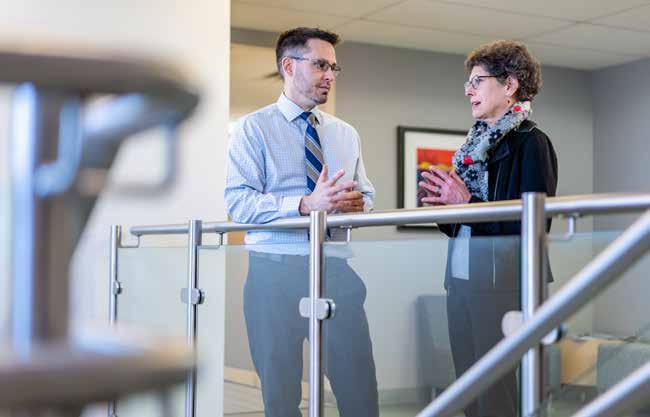
Global Pediatric Medicine
Fellows in the Global Pediatric Medicine program will have an exciting opportunity to learn from clinicians in St. Jude Global, an ambitious, large-scale initiative to improve access to care for children with cancer and other life-threatening diseases around the world. Fellows will be challenged to consider ways of delivering care to children in low- and middle-income countries and will expand their knowledge by studying abroad at one of our partner sites in a variety of international locations.
As a fellow, you will:
• Be part of a dynamic, rapidly growing program with an ambitious goal of influencing the care of 30 percent of the world’s pediatric cancer population
• Learn about the challenges of delivering care for children with pediatric cancer and infectious diseases in low- and middle-income countries
• Conduct research and engage with patient care providers abroad
• Have access to the resources of St. Jude Global member sites, as well as partnerships with governmental and other organizations
This fellowship program can last between one and three years.
Program Director: Daniel Moreira, MD: daniel.moreira@stjude.org
Eligibility:
Eligible applicants will have completed an accredited fellowship program in pediatric hematology/oncology or pediatric infectious diseases.
Learn More & Apply: Visit: stjude.org/global-fellowship

Leukemia/Lymphoma
The St. Jude Leukemia/Lymphoma Division offers a unique training opportunity through a one-year fellowship program. Fellows will have the opportunity to work with leaders in the field as they hone their skills in the treatment of hematologic malignancies.
As a fellow, you will:
• Enhance clinical expertise in the diagnosis, evaluation, and management of hematologic malignancies in infants, children, adolescents, and young adults.
• Develop and enhance the multidisciplinary approach for management of children with diverse types of hematologic malignancies.
• Apply knowledge obtained from basic laboratory and clinical research to better understand mechanisms of pathogenesis, treatment, and recurrence in pediatric hematologic malignancies.
• Participate in case conferences, lectures, and disease-oriented team meetings to increase the knowledge of specific hematologic malignancies.
This one-year program allows fellows to receive advanced training in the evaluation, diagnosis and management of infants, children, adolescents, and young adults with a variety of hematologic malignancies.
Program Director: Hiroto Inaba, MD, PhD: hiroto.inaba@stjude.org
Eligibility:
Candidates should be American Board of Pediatrics eligible or certified for pediatric hematology/oncology or should have received equivalent training as judged by the program directors.
Learn More & Apply: stjude.org/pll-fellowship
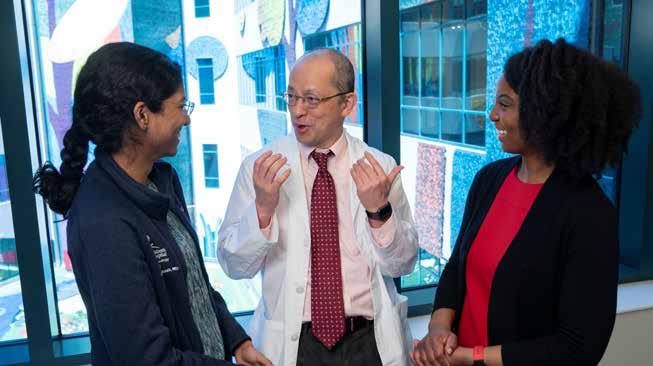
Neuro-Oncology
Fellows in the Neuro-Oncology program will gain experience with the etiology and biology of pediatric brain tumors, working within one of the largest brain tumor programs in North America. The program trains fellows on the optimal provision of clinical care, as well as on innovative therapeutic approaches being developed in St. Jude-led and multi-site clinical trials.
As a fellow in our Neuro-Oncology program, you’ll deepen your understanding of the biology and etiology of pediatric brain tumors while gaining clinical experience within one of North America’s largest brain tumor centers. This program offers a blend of clinical training and exposure to innovative therapeutic approaches being developed at St. Jude, designed to prepare you for leadership in neuro-oncology
As a fellow, you will:
• Manage diverse clinical cases: Gain experience caring for a broad spectrum of patients in a high-volume clinical setting.
• Collaborate across specialties: Integrate expertise from pediatric neurology, neurosurgery, neuropathology, neuroradiology, oncology, and radiation oncology to provide comprehensive care for children with primary brain tumors and therapy-related neurological complications.
• Engage with cutting-edge therapies: Work alongside internationally recognized laboratories in clinical pharmacology and molecular biology to explore innovative treatments.
• Translate research to patient care: Advance research that bridges laboratory discoveries and clinical protocols, directly impacting our patient care
This one-year clinical fellowship provides a platform to expand your clinical knowledge and skills and be involved in protocol development and clinical trials from bench to bedside under the mentorship of internationally renowned clinical investigators
Program Director: Giles Robinson, MD: giles.robinson@stjude.org
Associate Program Director: Emily Hanzlik: emily.hanzlik@stjude.org
Program Coordinator: Amie Ray: amie.ray@stjude.org
Eligibility:
Eligible applicants will have completed an accredited pediatric hematology/oncology or pediatric neurology fellowship program.
Learn More & Apply: Visit: stjude.org/neuro-oncology-fellowship
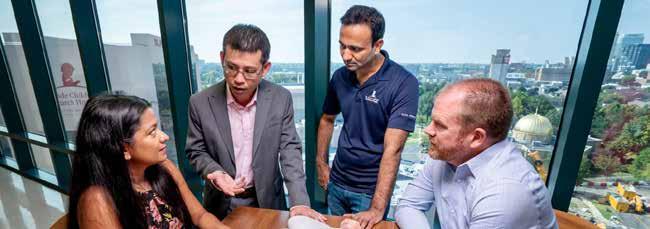
“I was a hematology-oncology fellow at St. Jude from 2001 to 2005 and then joined the faculty. A St. Jude fellowship offers opportunities that fit a multitude of interests and talents—there is something for everybody. During fellowship I was also able to pursue a master’s degree in Epidemiology, which gave me the tools to pursue clinical research. The opportunities for research and clinical collaboration at St. Jude are vast, allowing fellows to build strong professional relationships early in their careers.”

Jane S. Hankins, MD, MS
Former clinical fellow in Hematology/Oncology and Sickle Cell Disease, current Member in Global Pediatric Medicine
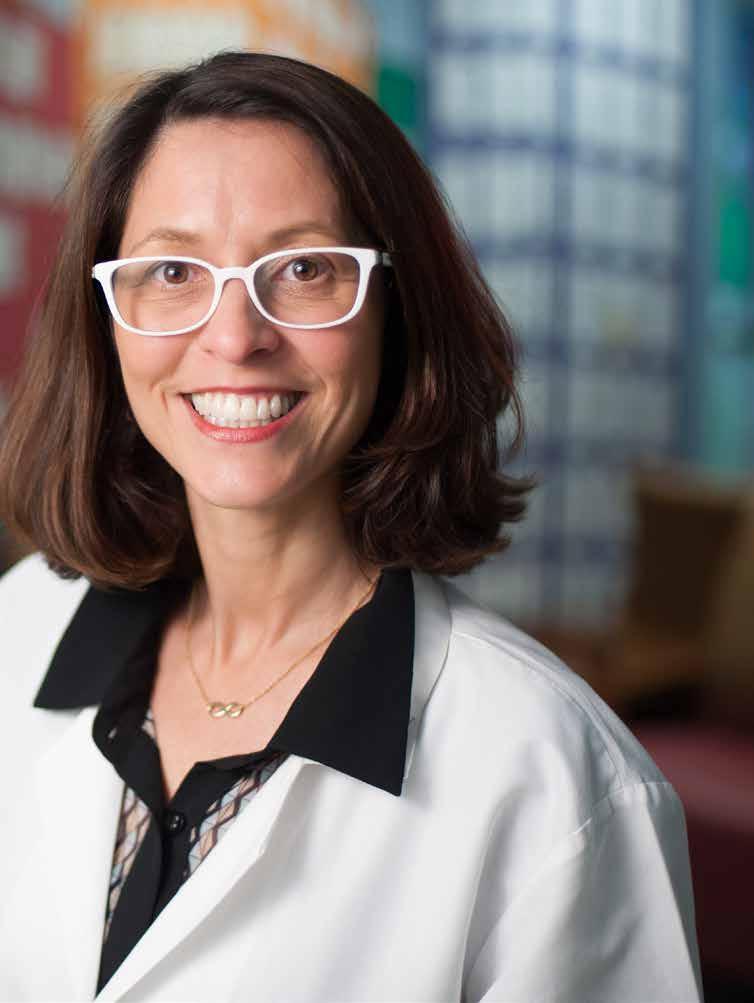
Onco-Critical Care
As a fellow in this program, you will be exposed to a wide range of critical care pathology cases and will provide direct patient care through the diagnosis and management of life-threatening conditions and morbidities in pediatric hematology/oncology and hematopoietic cell transplant patients. We collaborate closely with sub-specialists from Le Bonheur Children’s Hospital, including four cardiomyopathy physicians with a focused interest in cardio-oncology, as well as pulmonologists and nephrologists.l.
As a fellow, you will:
• Enhance your ability to identify and manage critical care conditions common in our patients, including those with newly diagnosed leukemia, brain tumors, and mediastinal masses.
• Treat hematopoietic cell transplant patients and those with disease states unique to the immunocompromised host.
• Gain exposure to hematologic emergencies.
Onco-Critical Care fellows can also participate in the Hematology/Oncology educational opportunities and are expected to participate in St. Jude’s annual Clinical Fellows Research Symposium. Fellows in our program will also attend the Pediatric Acute Lung Injury and Sepsis Investigator (PALISI) semiannual meetings, including the fellow course.
This is a one-year program that can begin at any time, but a July 1-June 30 schedule is preferred.
Program Director: Caitlin Hurley, MD: caitlin.hurley@stjude.org
Program Coordinator: Amie Ray: amie.ray@stjude.org
Eligibility:
Eligible applicants will have completed an ACGMEaccredited Pediatric Critical Care Medicine fellowship. International applicants must be ECFMG certified.
Learn More & Apply: stjude.org/onco-critical-care-fellowship

Sickle Cell Disease
The Comprehensive Sickle Cell Center at St. Jude is one the largest sickle cell disease programs in the country. This program treats approximately 900 children with sickle cell disease each year. The St. JudeMethodist Sickle Cell Disease Transition clinic, an integral part of the Comprehensive Sickle Cell Center, ensures the appropriate transition of adolescents to adult health care for ongoing management of this complex chronic disease. Our partnerships with Methodist University Hospital and the University of Tennessee also connects our faculty and fellows to an adult sickle cell population of approximately 350 adults. The clinic serves as a national model for other programs aiming to improve outcomes of this disease.
As a fellow, you will:
• Develop expertise in the clinical, biological and therapeutic aspects of sickle cell disease in pediatric and adult patients
• Be mentored by nationally recognized leaders in the field
• Participate in clinical research projects and present your work at local and national meetings
This one-year program trains innovative leaders in treatment and management of sickle cell disease in pediatric and adult patients. Supported by an outstanding multidisciplinary team, the program focuses on providing patient centered/family focused care to patients.
Program Director
Nidhi Bhatt, MD: nidhi.bhatt@stjude.org
Program Coordinator: Amie Ray: amie.ray@stjude.org
Learn More & Apply: stjude.org/sickle-cell-fellowship
Eligibility:
Eligible applicants will have completed training in pediatric hematology/oncology, adult hematology/ oncology, adult hematology, internal medicine, family medicine or medicine/pediatrics.
Interested candidates should send a copy of their CV, a personal statement, and three letters of recommendation to the program directors.
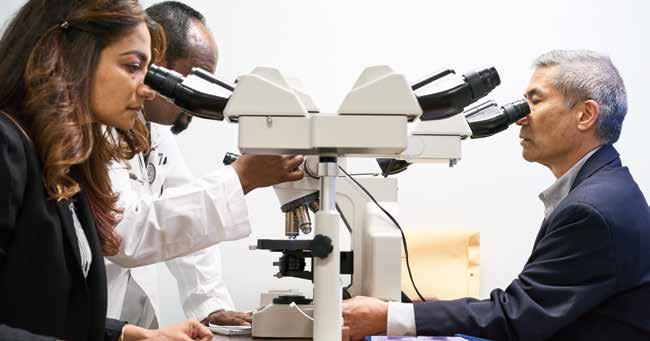
Solid Tumor
The St. Jude Solid Tumor Division offers exceptional training through one of the few pediatric solid tumor fellowship programs in the country. Fellows will receive state-of-the-art sub-specialty training while learning to develop and test novel therapeutic interventions for pediatric patients at risk of treatment failure.
As a fellow, you will:
• Participate in novel early phase clinical trials evaluating innovative therapeutic interventions and correlative biologic analyses
• Integrate the specialties of pediatric oncology, surgery, pathology, radiology and radiation oncology into the complex care of children with newly-diagnosed and relapsed or refractory solid tumors
• Receive customized training based on your clinical and research interests
• Care for a large volume of patients, with diverse cancer diagnoses, in a state of the art, multi-disciplinary setting
• Organize and present data at institutional, local, and international conferences and prepare a manuscript for submission to a peer-reviewed journal
This one-year program allows fellows to expand their clinical expertise in the diagnosis, evaluation and multidisciplinary management of patients with solid tumors.
Program Director: Sara Federico, MD: sara.federico@stjude.org
Program Coordinator: Amie Ray: amie.ray@stjude.org
Eligibility:
Eligible applicants will have completed an accredited pediatric hematology/oncology fellowship program.
Learn More & Apply: stjude.org/solid-tumor-fellowship


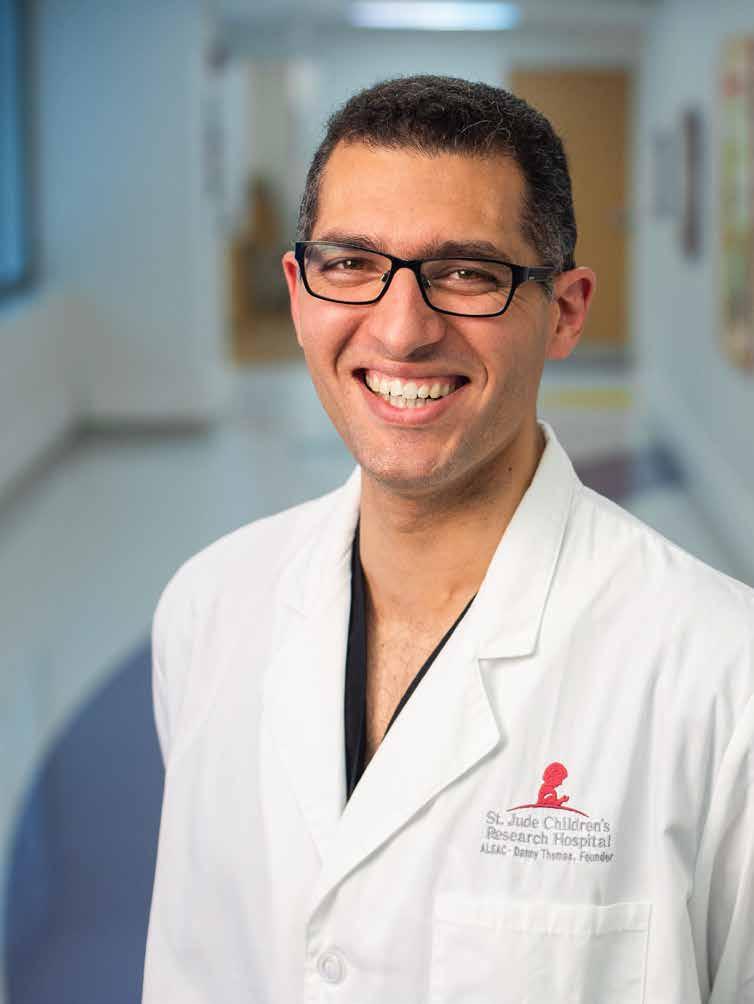

“I chose the St. Jude fellowship program because you are surrounded by remarkable mentors and researchers in a truly congenial atmosphere. Training here provides a unique experience, with emphasis on the clinical management of children with a variety of complicated pediatric malignancies.”
Yousef El-Gohary, MD Pediatric Surgical Oncology Alumnus
Ocular Oncology
St. Jude Ocular Oncology fellows have the rare opportunity to gain experience in the diagnosis and management of ocular tumors in both pediatric and adult patients. Fellows will divide their time between St. Jude and the University of Tennessee Health Science Center’s Hamilton Eye Institute and will undertake a clinical or translational research project of their own design centered on either adult or pediatric care.
As a fellow, you will:
• Examine approximately 100 new uveal melanoma patients and 30 new retinoblastoma patients per year
• Cultivate a greater depth of knowledge regarding the use of radiotherapy and chemotherapy in the treatment of ocular cancer
• Collaborate with faculty in multidisciplinary teams including oncology, radiation oncology and global medicine
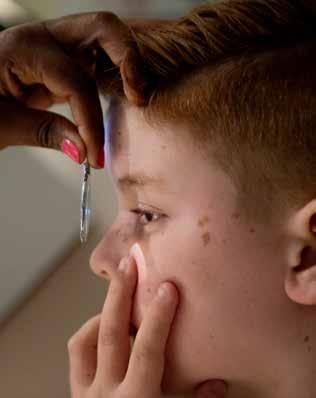
• Have access to a breadth of educational resources at both St. Jude and the University of Tennessee Health Science Center, including Grand Rounds, other CME activities and lectures and journal clubs
This one-year fellowship offers fellows extensive exposure to the nuances of ocular oncology by providing access to a variety of pediatric and adult patient cases.
Program Director: Matthew W. Wilson, MD: mwilson5@uthsc.edu
Program Coordinator: Amie Ray: amie.ray@stjude.org
Eligibility: Eligible applicants will have completed residency training in ophthalmology.
To Apply:
This program participates in the SF Match for Ophthalmology: sfmatch.org.
Learn more: stjude.org/ocular-oncology-fellowship
Pediatric Surgical Oncology
The St. Jude Surgical Oncology fellowship provides exceptional training for fellows with a variety of surgical backgrounds, offering a unique experience tailored to the fellow’s needs. Fellows will use cutting-edge procedures and state-of-the-art equipment to provide superior clinical care to pediatric patients.
As a fellow, you will:
• Gain extensive experience in the resection of pediatric abdominal and thoracic solid tumors, limb-sparing resections for bone tumors, head and neck surgery, soft tissue surgery and central venous access
• Spend three months during the first year on a pediatric general surgery rotation at Le Bonheur Children’s Hospital
• Participate in regular conferences and development programs at St. Jude, such as weekly case management conferences, the St. Jude Solid Tumor Conference and Tumor Board, St. Jude Pediatric Surgery Oncology Multi-Institutional case discussion and weekly conferences at Le Bonheur
• Engage in a clinical research project during the fellowship period
This two-year program provides fellows with the opportunity to work directly with some of the world’s most noted researchers and clinical faculty. Fellows may choose to spend an additional third year involved in a basic or clinical research project.
Program Director: Lindsay Talbot, MD: lindsey.talbot@stjude.org
Program Coordinator: Amie Ray: amie.ray@stjude.org
Eligibility:
Eligible applicants will have completed a US or international general surgery residency or will have completed an ACGME-accredited fellowship in pediatric surgery.
Learn More & Apply: stjude.org/surgical-fellowship
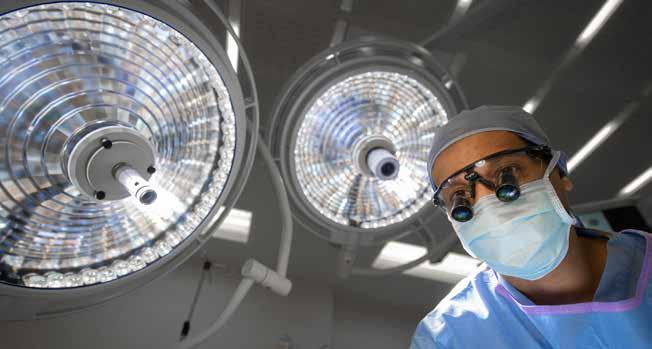
Pediatric Neuropsychology
The Neuropsychology fellowship program focuses on the neurobiological, cognative and social consequences of brain damage for children following treatment. Working closely with the extraordinary faculty at St. Jude, fellows will learn to evaluate the efficacy of interventions designed to improve patients’ quality of life.
As a fellow, you will:
• Interact with patient populations representing a wide range of cognitive problems, including difficulties in the areas of attention, executive functioning, memory, visuospatial reasoning and psychosocial adjustment
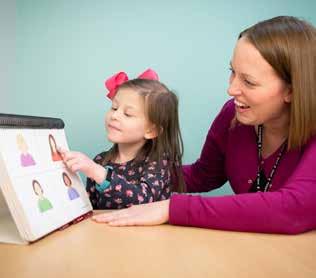
• Gain clinical experience in neuropsychological assessment, consultation and intervention in the areas of pediatric oncology, HIV/AIDS, rare genetic disorders, sickle cell disease and other hematologic disorders
• Conduct bedside assessments with children to monitor recovery following acute neurologic events or neurosurgical intervention
• Cultivate a developmental lifespan perspective by participating in didactics covering adult and geriatric neuropsychology
• Conduct research projects on the neurocognitive sequelae of pediatric cancer or sickle cell disease, as well as interventions to improve cognitive outcomes
This two-year combined clinical and research fellowship meets INS-Division 40, Houston Conference and ABPP preparation guidelines.
Program Director: Brian Potter, PsyD: brian.potter@stjude.org
To Apply:
This program participates in the APPCN Resident Matching Program. Details can be obtained at http:// www.appcn.org
Learn More: stjude.org/neuropsychology-fellowship
Eligibility:
Applicants who have completed an APA/CPAaccredited doctoral program in clinical psychology, clinical neuropsychology, pediatric psychology or school psychology are preferred. All applicants must have clinical experience and training in working with children. Prior training, coursework and experience in neuropsychology are strongly preferred. Candidates must have completed an APA/CPA or APPIC-approved internship and have defended their dissertation before beginning of the fellowship.
Pediatric Psychology
Fellows in the St. Jude Psychology fellowship program will receive clinical training in the consultation, intervention and assessment of pediatric and young adult patients in both inpatient and outpatient settings. Additionally, fellows are trained in research-based skills such as manuscript writing and publication, study design, data collection and analysis, and grant writing while working on tailored research projects.
As a fellow, you will:
• Gain exposure to various populations, including those with hematologic and solid malignancies, brain tumors, sickle cell disease and other hematological disorders, HIV/AIDS, cancer predisposing genetic disorders, patients undergoing bone marrow transplantation, and long-term survivors of cancer
• Engage in specialty rotations in pain management, HIV/AIDS, early childhood assessment and intervention
• Supervise junior trainees
• Participate in professional development opportunities through departmental didactics and rounds, Grand Rounds and Responsible Conduct of Research training
This two-year fellowship is designed to be flexible to suit your needs and professional goals. Fellows enjoy a collaborative environment with outstanding mentorship experiences with our highly trained and knowledgeable faculty.
Program Director: Kendra Parris, PhD: kendra.parris@stjude.org
Eligibility:
Eligible applicants will hold a PhD or PsyD from an APA/CPA-accredited program in Psychology and have completed a clinical internship at an APA/CPAaccredited program.
To Apply:
Visit the APPA CAS application website: appicpostdoc.liaisoncas.com/applicant-ux/#/login.
Learn More: stjude.org/psychology-fellowship
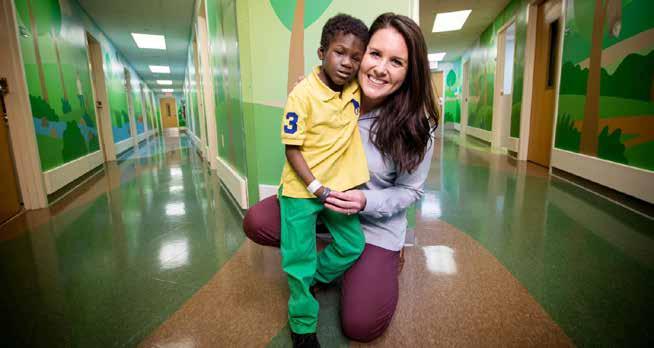

“The Pediatric Psychology and Neuropsychology fellowships at St. Jude provide great clinical and research training. Fellows make lasting professional and personal relationships with amazing psychologists, neuropsychologists and researchers across the entire institution. I have truly valued my time at St. Jude and know that my training will serve me well in future endeavors.”
Justin L. Williams, PhD Pediatric Psychology Fellow Alumna
Pharmaceutical Second-year Residencies
The St. Jude Pharmaceutical Department offers three ASHP-accredited, one-year specialized pharmacy residency programs. These residencies provide the opportunity to participate in direct patient care responsibilities, conduct collaborative clinical research and attend Pharmacy and Therapeutics committee meetings. Residents will precept Doctor of Pharmacy students and provide didactic lectures, in-services and journal clubs.
A. Oncology – Pediatrics
This residency experience includes training in general hematology/oncology, bone marrow transplantation, infectious diseases and ambulatory care. Residents are trained in applied pharmacokinetics, pharmacogenetics, nutrition support and advanced clinical therapeutics of the pediatric cancer patient.
Program Director: Diana Wu, PharmD: diana.wu@stjude.org
B. Medication-Use Safety and Policy
This program prepares residents to assume leadership roles in coordinating and implementing improvements to the medication use system in a high-risk patient population. The complex nature of treatment offered at St. Jude provides a unique learning environment for patient safety and quality that can be applied to any health care setting.
Program Director: Jennifer Robertson, PharmD: jennifer.robertson@stjude.org
C. Clinical Pharmacogenomics
This program trains residents to excel in the implementation of pharmacogenomic testing in clinical practice. St. Jude runs an institution-wide program to implement pre-emptive pharmacogenetic testing (www.stjude.org/pg4kds) and the resident will assist in directing that program.
Program Director: Kristine Crews, PharmD: kristine.crews@stjude.org
D. Pharmacy Informatics
This program is designed to foster expertise in medication-use systems and informatics while providing the resident with a comprehensive understanding of pharmaceutical data analytics.
Program Director: David Aguero, PharmD: david.aguero@stjude.org
E. Pharmacy Infectious Diseases
This program is designed to foster expertise in infectious diseases in general pediatric, oncology, and non-malignant hematology patients. The resident will gain experience in pharmacokinetics, pharmacogenomics, and basic science research.
Program Director: Ted Morton, PharmD: ted.morton@stjude.org
Eligibility:
Eligible applicants will hold a Doctor of Pharmacy degree, have successfully completed an ASHP-accredited Postgraduate Year One Pharmacy Residency and be eligible for licensure to practice pharmacy in the state of Tennessee.
Learn More: stjude.org/pharmacy-residency
To Apply:
Submit application materials through PhORCAS at portal.phorcas.org.
While not required for candidacy, resident applicants are strongly encouraged to interview with St. Jude staff at the Professional Placement Service (PPS/CareerPharm) at the ASHP Midyear Clinical Meeting.
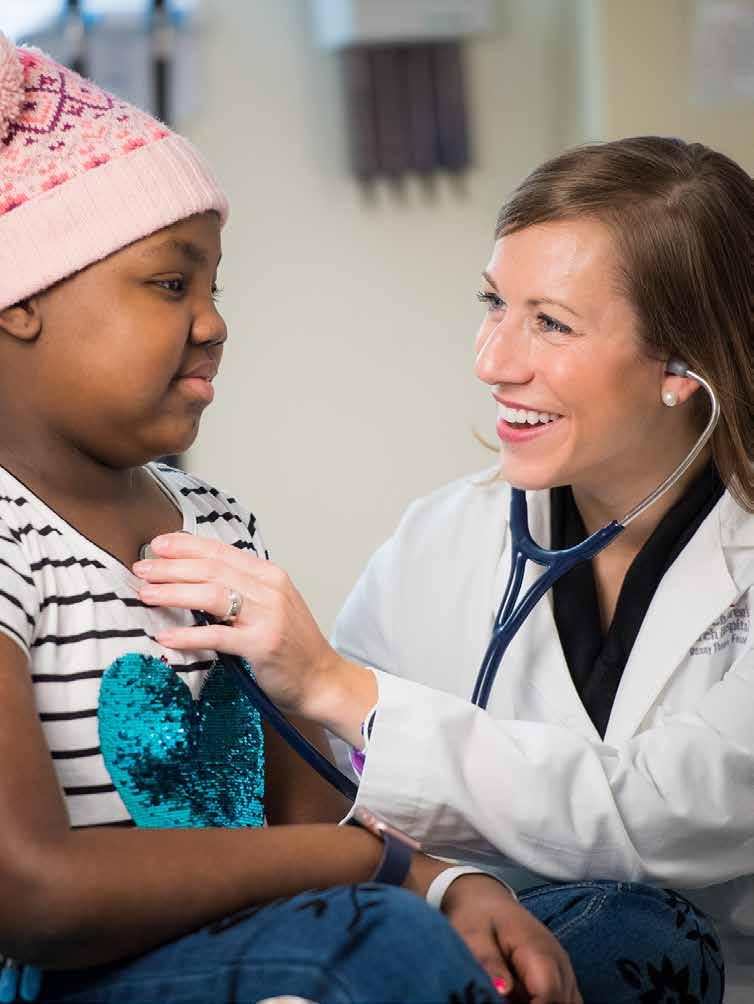
Environment
Clinical Care
Fellows treat patients in both inpatient and outpatient settings at St. Jude and Le Bonheur Children’s Hospital. Both hospitals are Joint Commission-accredited and are designated as Magnet freestanding hospitals. St. Jude and Le Bonheur have both been consistently recognized by U.S. News and World Report for being best hospitals in their fields of interest.
St. Jude inpatient care includes Leukemia/ Lymphoma service, Solid Tumor/Neuro-Oncology service, Stem Cell Transplant service and Hematology. Inpatient rounds on all services include members of the multidisciplinary team to address the psychological, social, cultural and economic impacts of treatment on patients and families.
St. Jude outpatient clinics include Hematology, Leukemia/Lymphoma, Solid Tumor, After
Completion of Therapy (ACT), Neuro-Oncology, Hematopathology and HIV service.
Clinical Trials
St. Jude develops more oncology clinical trials than any other U.S. children’s hospital. Armed with leading-edge research, superb resources and a strong collaborative culture, we translate laboratory discoveries into new options for children with cancer and other life-threatening diseases. We offer therapeutic and non-therapeutic Phase I, Phase II and Phase III clinical trials in childhood cancer, hematology, infectious diseases and supportive care, as well as healthy volunteer studies. More than half of our cancer patients are enrolled in a primary therapeutic protocol within the first 60 days of treatment.
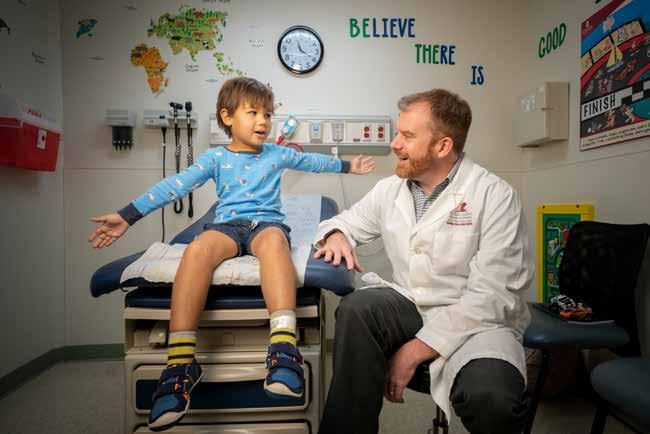
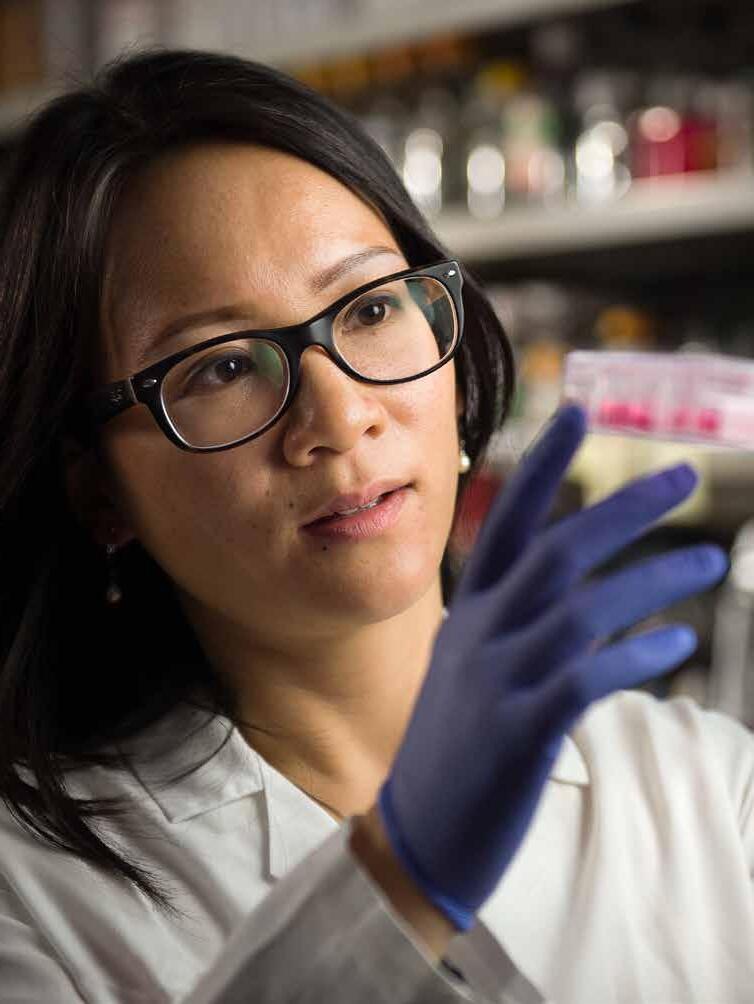
Departments & Multidisciplinary Collaborations
Collaboration is a cornerstone of the St. Jude research environment. Multidisciplinary working groups meet and collaborate regularly to enhance translational discovery and foster the free exchange of ideas among researchers at all career levels.
St. Jude is the only NCI Comprehensive Cancer Center devoted solely to pediatrics. The center supports transdisciplinary, collaborative scientific and clinical research to understand, prevent and treat childhood cancer.
The Children’s Infection Defense Center (CIDC) provides a format for interdisciplinary research in infectious diseases, bringing together more than 40 principal investigators at St. Jude, the University of Tennessee Health Science Center, Le Bonheur Children’s Hospital and the University of Memphis. The CIDC seeks to eliminate catastrophic infectious diseases of childhood through development and use of vaccines and therapeutic agents.
St. Jude offers fellows access to exceptional shared resources and core facilities to support clinical and laboratory-based research.
For a full listing, see stjude.org/shared-resources.
Biostatistics
Chair: Tomi Mori, PhD
Bone Marrow Transplantation and Cellular
Therapy
Chair: Stephen Gottschalk, MD
Cell and Molecular Biology
Chair: J. Paul Taylor, MD, PhD
Chemical Biology and Therapeutics
Chair: Aseem Ansari, PhD
Computational Biology
Chair: Jiyang Yu, PhD
Developmental Neurobiology
Chair: Michael A. Dyer, PhD
Diagnostic Imaging
Chair: Andrew Smith, MD, PhD
Epidemiology and Cancer Control
Chair: Greg Armstrong, MD
Genetics
Chair: Gerard Grosveld, PhD
Global Pediatric Medicine
Chair: Carlos Rodriguez-Galindo, MD
Hematology
Chair: Mitchell J. Weiss, MD, PhD
Immunology
Chair: Hongbo Chi, PhD
Infectious Diseases
Chair: Octavio Ramilo, MD
Oncology
Chair: Julie R. Park, MD
Pathology
Chair: David Ellison, MD, PhD
Pediatric Medicine
Chair: Amar Gajjar, MD
Pharmacy & Pharmaceutical Sciences
Chair: David Rogers, PharmD, PhD
Psychology & Behavioral Sciences
Chair: Kevin Krull, PhD
Radiation Oncology
Chair: Thomas E. Merchant, DO, PhD
Structural Biology
Chair: Charalampos Kalodimos, PhD
Surgery
Chair: Andrew M. Davidoff, MD
Tumor Cell Biology
Chair: Charles J. Sherr, MD, PhD
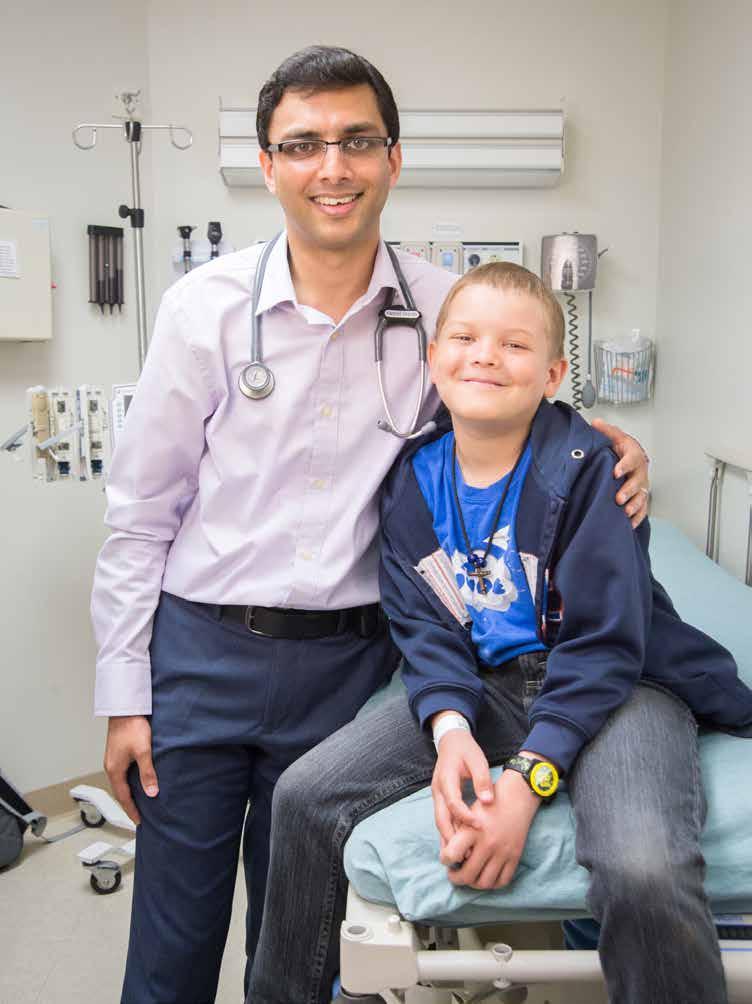
Career Paths
Alumni from St. Jude clinical fellowship programs are highly successful in obtaining tenure-track and hospital careers in prominent academic medical institutions, both in the U.S. and internationally.
About 30 percent of current clinical faculty at St. Jude completed a fellowship here.
Other alumni enter private practice in communities across the country and the globe. St. Jude clinical fellows have also taken positions at prominent industry and pharmaceutical companies.
Below are some of the institutions and companies where recent alumni have accepted positions.
Academic Faculty Positions
Baylor College of Medicine
Beth Israel Comprehensive Cancer Center
Brown University
Children’s Hospital of Philadelphia
Cincinnati Children’s Hospital
Cleveland Clinic
Dana Farber Cancer Institute
Duke University
Emory University
George Washington University
Mayo Clinic
MD Anderson Cancer Center
Memorial Sloan Kettering Cancer Center
Northwestern University
Penn State University
Rainbow Babies and Children’s Hospital
Seattle Children’s Hospital
St. Jude Children’s Research Hospital
Stanford University
The Hospital for Sick Children, Toronto
Temple University
University of California San Diego
University of North Carolina at Chapel Hill
Vanderbilt University
Washington University in St. Louis
Wake Forest Medical Center
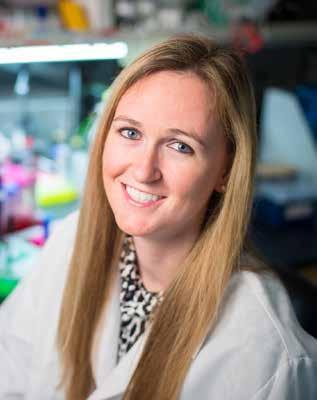
Pharmaceutical/Industry Positions
BC Biomedical Laboratories Ltd.
Genentech
Merck Research Laboratories
Myriad Genetics
Pfizer
Novartis
Rexahn Pharmaceuticals
Life in Memphis
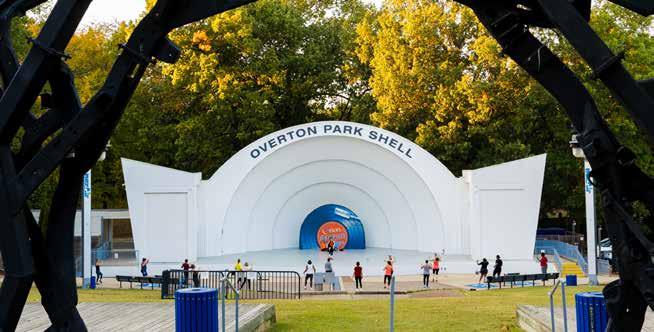
A rich history of music and the arts is alive in Memphis—an ultra-livable city with an excellent quality of life and affordable cost of living. With a metro population of more than a million, the city has world-class dining, culture, night life, family fun and outdoor recreation—all while retaining a friendly, small-town vibe.
Attractions and activities include:
• Memphis Grizzlies NBA basketball team, Redbirds AAA baseball team and Memphis 901 FC USL soccer team
• Shelby Farms, a 4,500-acre urban park featuring the Go Ape Treetop Adventure
• Dixon Gallery and Gardens, Memphis Botanic Garden and Brooks Museum of Art
• Family-friendly activities at the Children’s Museum, Memphis Zoo, Pink Palace Museum, Planetarium and 3D Giant Theater
• Beale Street, home of the blues
• National Civil Rights Museum
• Concert venues including the outdoor Levitt Shell, Mud Island Amphitheater, Minglewood Hall, FedEx Forum, BankPlus Amphitheater and the New Daisy Theater
• Thriving local music scene including indie rock, blues, soul, hip hop, R&B, and rock ‘n’ roll
• World-class performing arts at the Orpheum Theatre, Opera Memphis, Germantown Performing Arts Center, Cannon Center, Ballet Memphis and Overton Square theater district
• Local art scene including the Memphis College of Art Gallery, South Main Arts District Trolley Tour, Broad Avenue Art Walk and many small galleries
• Music, food, arts and cultural festivals including the Pink Palace Crafts Fair, Indie Memphis Film Festival, River Arts Fest, Cooper Young Festival, Memphis in May and Mid-South Pride Festival
• Running and cycling groups, Greater Memphis Soccer Association and many other sports clubs
• Kayaking on the Wolf River
• Cycling on the 6.5-mile Shelby Farms Greenline and Harahan Bridge trail across the Mississippi River
For exploration farther afield, the Ozark Mountains, Great Smoky Mountains, Gulf Coast beaches, St. Louis, Atlanta and New Orleans are within driving distance. The Memphis International Airport is a convenient 15-minute drive from St. Jude.
New Memphis Institute newmemphis.org
I Love Memphis Blog ilovememphisblog.com
Choose 901 choose901.com
Get Down Memphis downtownmemphis.com
Memphis Convention and Visitors Bureau memphistravel.com
Memphis Flyer newspaper memphisflyer.com
Shelby Farms Park Conservancy shelbyfarmspark.org
More Resources memphis.stjude.org










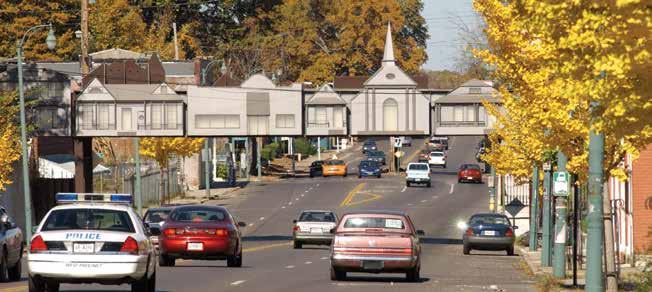
Inviting, affordable housing options are available near St. Jude and in neighborhoods throughout Memphis. Whether you prefer quiet, family-oriented communities or lively areas with restaurants and nightlife, you will find a friendly place to call home.
One of the most popular places to live in Memphis is a neighborhood called Harbor Town. Located on the Mississippi River only 1.5 miles from the St. Jude campus, Harbor Town offers a true community feel,
plus green space, dining and retail, and beautiful views.
Other popular living areas include the artsy and historic neighborhoods of midtown Memphis, the downtown South Main Arts District and a wide assortment of leafy residential neighborhoods in East Memphis, Germantown and other nearby communities.

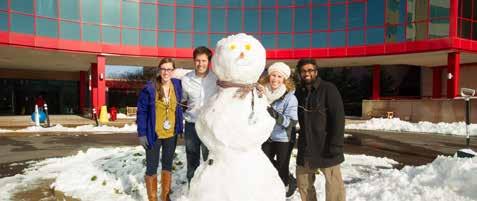
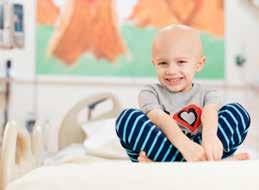

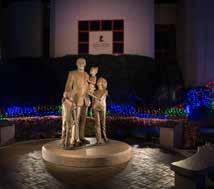



Fellow Benefits
Clinical Education and Training Office
The Clinical Education and Training Office (CETO) is the central resource to support you throughout your fellowship training at St. Jude. CETO oversees most clinical education and training programs at St. Jude, also serving residents, medical students and our Continuing Medical Education program, which is ACCME-Accredited with Commendation. We ensure our clinical training programs provide a professionally enriching experience for each trainee while meeting rigorous quality standards. For clinical fellows, we offer monthly systems-based seminars and a biostatistics journal club. We also coordinate an annual Clinical Fellow Research Symposium and plan several retreats throughout the year. Our team administers several programs for fellows, including the optional master’s degree, course support and travel grants.
Director: Angelina Kuo, JD
Clinical Fellow Recruiter Manager: Keneshia Seals
Questions? Email GME@stjude.org
Competitive Salary
St. Jude clinical fellows receive highly competitive stipends that are above the national average, as reported by Association of Medical Colleges and National Institutes of Health. All fellows are compensated based on a uniform salary scale and receive annual salary increases.
Sign-on Bonus
To assist with relocation expenses, clinical fellows at St. Jude receive a $3,000 sign-on bonus, included in the first paycheck (subject to taxation).
Vacation and Paid Leave
Clinical fellows receive generous paid leave, including:
• Three weeks of vacation per year
• Nine paid holidays per year
• Two paid personal holidays per year
• Nine days of accrued sick leave per year
• Bereavement and jury duty leave
• Maternity leave
Health Benefits and Insurance Programs
• Medical insurance (includes prescription coverage)
• Choice plan: $0/month-single; $45/month-family
• Select plan: $0/month-single; $90/month-family
• Vision coverage:
• $0/month—single
• $3.64/month—family
• Dental coverage:
• $0/month—single
• $4.50/month—family
• Group life insurance: 1.5 times the annual salary (employer paid)
• Additional life insurance: up to 3.5 times the annual salary at group rates
• Group accidental death and dismemberment insurance (employer paid)
• Dependent life insurance (employer paid)
• Long-term disability insurance (employer paid)
• Worker’s compensation
Professional Development Benefits
• $2,500 annual professional development allowance (used for travel, journal subscriptions and other professional uses)
• Competitive scholarship program to obtain a relevant master’s degree at institutions such as Harvard University, Johns Hopkins University, George Washington University and Emory University
• Annual Clinical Fellows Research Symposium, which includes keynote talk, small-group breakout sessions and poster presentations
• Regular meetings of interdisciplinary professional and scientific/clinical development programs, including Grand Rounds, Systems-Based Seminars and HemOnc/ ID/Biostatistics Journal Club
• Membership on St. Jude Standing Committees and the opportunity to help plan the annual Clinical Fellows Research Symposium, Clinical Fellows Appreciation Week and year-end graduation activities
• Laptop and mobile phone
Other Benefits
• Free parking
• Child care center
• Free on-site fitness center, including group classes
• On-campus bike share
• On-site credit union
• On-campus dining featuring multiple themed stations with rotating menus
• Convenience amenities like on-campus dry cleaning service, car detailing, massage appointments and corporate discounts
FY16–21 ST. JUDE STRATEGIC PLAN
GROWTH
7.9% ANNUALLY increase in operating budget
$762 MILLION total capital dollars spent
23% INCREASE in total employees
30% INCREASE in total faculty
20% INCREASE in new cancer patients
20% INCREASE inpatient bed capacity
15% INCREASE in family housing capacity
58% INCREASE in extramural research funding awarded to St. Jude
UP 3-FOLD increase in computing power
UP 8-FOLD increase in computing storage capacity
FY22-27 Strategic Plan
At the start of this new strategic planning process, we took stock of the past six years. We considered the milestones reached, the established academic foundation of St. Jude and the ample resources provided by an army of generous donors—made possible by ALSAC, the hospital’s fundraising organization.
Then, we asked the question: How can we leverage these incredible assets to accelerate progress and maximize impact for children in Memphis and around the globe?
The new FY22–27 St. Jude Strategic Plan is designed to answer this lofty call.
The plan concentrates on five areas: fundamental science, childhood cancer, pediatric catastrophic diseases, global impact, and workforce and environment.
Across these sections, we outline 11 goals that hold the promise of transforming science and medicine, while strengthening collective efforts to speed cures.
Our aspirations are far-reaching. The plan—a $12.9 billion commitment—will support 2,300 additional jobs; provide $2.3 billion in new construction, renovation and capital needs; and open new areas of research.
While ambitious, this six-year course will allow us to significantly influence the way the world understands and treats childhood cancer, sickle cell disease, neurological disorders and infectious diseases. At its heart, the plan is a call to accelerate progress for children with catastrophic diseases on a global scale.
Hospital founder Danny Thomas sought a day when no child dies in the dawn of life. As we move closer to realizing his dream, let the St. Jude mission serve as our compass and the FY22–27 St. Jude Strategic Plan as our guide for the journey ahead.
FY22–27 Strategic Plan Goals
Focus on Fundamental Science
1 Advance fundamental laboratory-based research efforts to drive new discoveries that accelerate the ability to advance cures
Focus on Childhood Cancer
2 Advance cures for pediatric cancers with the lowest survival rates and for children with relapsed disease
3 Reduce the toxicity of cancer therapy and enhance the quality of life for all children who survive pediatric cancer
Focus on Childhood Catastrophic Diseases
4 Advance cures for children with nonmalignant hematological diseases, including sickle cell disease, coagulation disorders and bone marrow failure syndromes
5 Advance cures for children with catastrophic neurological diseases
6 Establish a world-leading research effort in infectious diseases that affect children
Focus on Global Impact
7 Improve cure rates for pediatric cancer and catastrophic blood diseases worldwide through St. Jude Global and the Global Alliance
Focus on People and Place
8 Drive scientific collaboration across campus, the U.S. and around the globe to accelerate progress against pediatric catastrophic diseases
9 Set the standard for patient care and the experience patients and their families have during the treatment journey
10 Create a work environment that encourages employees to contribute maximally toward the mission, rewards their contributions and supports their career development
11 Build and support best-in-class environments that help employees advance the institution’s life-saving work and offer patients and their families a home away from home
RICHARDC.SHADYACLANE
stjude.org/clinical-fellowships
